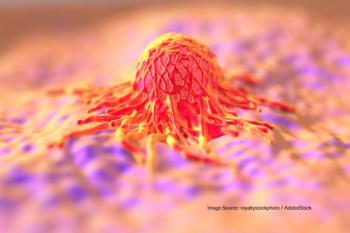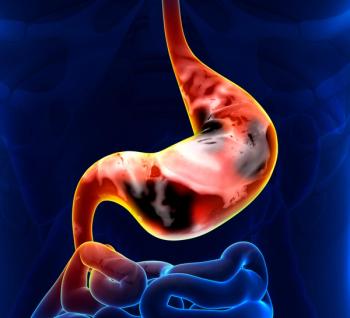
All News


The OPHELIA trial assessed the efficacy and safety of olaparib plus trastuzumab in HER2-positive advanced breast cancer with germinal BRCA mutations.

Second-line fruquintinib plus paclitaxel did not sustain sufficient efficacy for patients with advanced gastric or GEJ adenocarcinoma to support approval in China.

A clinical trial evaluated the ability of oxygen-enhanced MRI-derived hypoxic volume to detect radiotherapy-induced hypoxia modification.

A recent study investigated the incidence and clinical outcomes of acute graft-versus-host disease following post-transplantation cyclophosphamide-based prophylaxis in hematopoietic cell transplantation.

The Best of CAR T at the 2024 Tandem Meetings Webinar Series, which aired on June 27, 2024, aimed to provide a comprehensive overview of the latest advancements and research in CAR T cell therapy.



Regardless of T790M status, lazertinib hindered the progression of intracranial metastases after unsuccessful EGFR TKI treatment in patients with EGFR-mutated NSCLC.

Trials assessing NSCLC and cutaneous squamous cell carcinoma were discontinued due to no benefit observed or improvement noted with the primary end points.


The decision follows phase 3 EV-302 trial findings showing improved survival with enfortumab vedotin plus pembrolizumab vs chemotherapy in urothelial cancer.

The EGFR-MET bispecific antibody amivantamab in combination with chemotherapy yielded a survival benefit compared with chemotherapy alone for EGFR-mutated NSCLC.

A watch-and-wait method was implemented when vitamin D was given prior to treatment for chronic lymphocytic leukemia.

A PDUFA date has been set for February 28, 2025, for the potential approval of mirdametinib in neurofibromatosis type 1-associated plexiform neurofibromas.

Preliminary results from part 2 of the phase 2 trial evaluating VP-315 in basal cell carcinoma found no dose-limiting toxicities or treatment-related serious adverse events.

The addition of neoadjuvant S-1 also reduced the risk of death compared with adjuvant therapy alone in the phase 3 PRODIGY trial.


The PREFERABLE-EFFECT study found that supervised resistance and aerobic exercise were associated with reduced fatigue in patients with metastatic breast cancer.

Investigators previously assessed treatment with opaganib in patients with advanced cholangiocarcinoma and prostate cancer.

Strategies for treating patients with multiple myeloma who are eligible to receive CAR T-cell therapy in either community or academic practices were discussed in a recent Training Academy.


Phase 1/2 data support the fast track designation for BGB-16673 as a therapy for patients with relapsed/refractory chronic lymphocytic leukemia.

Findings from the phase 3 MARIPOSA-2 trial were the subject of a recent discussion of ambivantamab plus chemotherapy with or without lazertinib in EGFR-mutated NSCLC.

The European Commission’s decision represents the first regulatory approval of odronextamab for patients with follicular lymphoma or DLBCL.

Brian A. Van Tine, MD, PhD, discusses potential evolutions in the treatment landscape following the FDA approval of afami-cel in metastatic synovial sarcoma.

Minimal residual disease as an end point in multiple myeloma has been widely discussed and was even a topic of a recent ODAC meeting.


Experts in multiple myeloma sat down to discuss the use of bispecific antibodies and their impact in the space.


